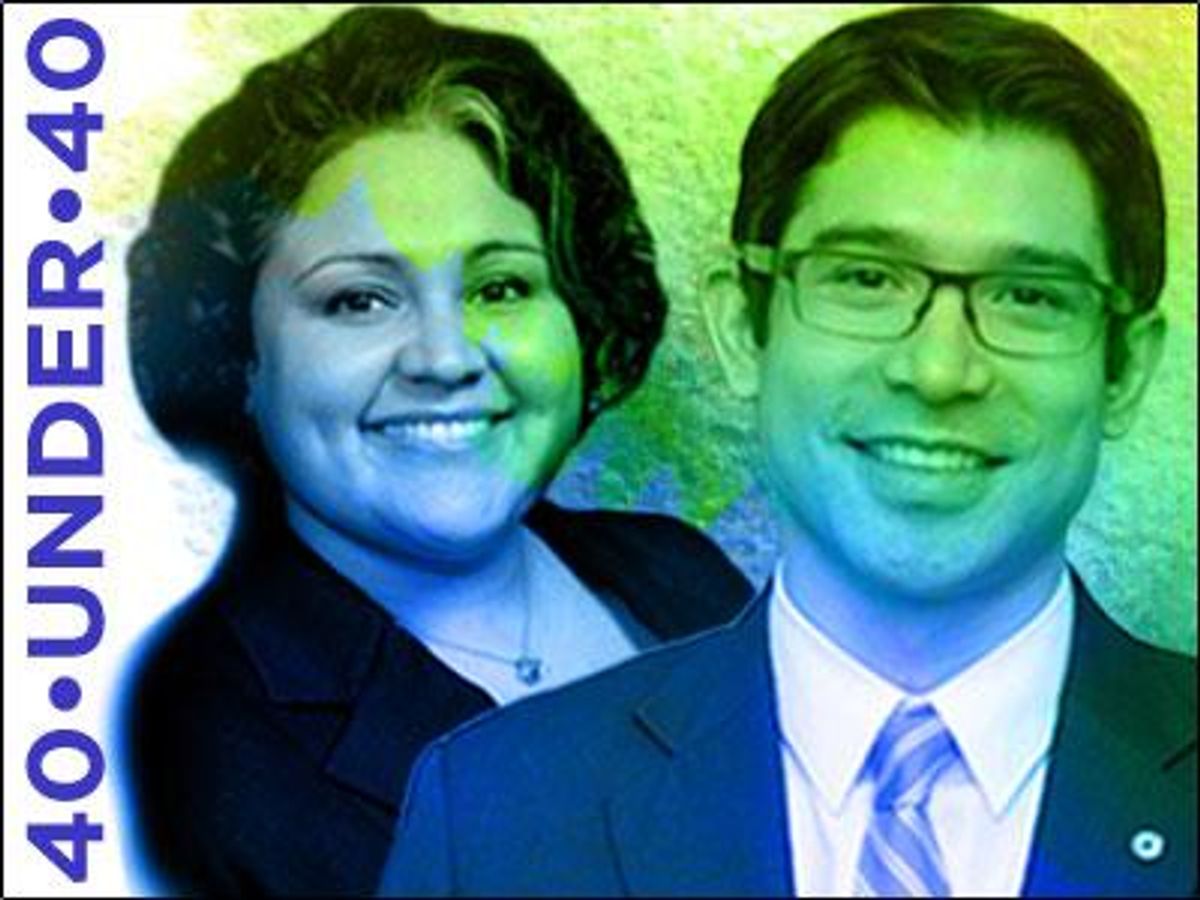JoCasta Zamarripa, 38
Milwaukee
@repjocasta
Carlos Menchaca, 33
Brooklyn, N.Y.
@cmenchaca
Immigration is one of the most pressing issues in American politics, and these two LGBT lawmakers are taking a lead in addressing it -- as well as advocating progressive measures to help all marginalized groups.
"We don't live in a vacuum," says JoCasta Zamarripa, a bisexual woman serving her second term in the Wisconsin State Assembly. "The intersections are great."
Zamarripa, a Democrat who in 2010 became the first Latina elected to Wisconsin's legislature, is the author of a bill to allow undocumented state residents to pay in-state rates of tuition at public universities and technical colleges if they graduated from a Wisconsin high school and pledge to get on a path to legal residency. Wisconsin briefly offered in-state tuition rates, which make about a 40 percent difference, for these students, under legislation signed by Democratic governor Jim Doyle in 2009, but that law was repealed in 2011 under the leadership of the state's current governor, Republican Scott Walker. She has also authored a bill to allow undocumented Wisconsinites to obtain driver's licenses, which is a public safety issue, she says.
Neither bill has become law, but Zamarripa remains hopeful, and she plans to reintroduce both if she is reelected this fall. "I tell folks, these are really going to improve the lives of all my constituents," she says.
Menchaca, a gay man who represents a Brooklyn district on New York's City Council, has been a strong advocate for immigrant services in the city. As chair of the council's Committee on Immigration, he helped assure that the city's budget for fiscal year 2015, which began July 1, substantially expands programs for immigrants. These include the Family Unity Project, which provides defense lawyers for impoverished immigrants who are in deportation proceedings. The budget also contains a large increase in funding for English-language instruction for immigrants.
A native of El Paso, Texas, Menchaca is the first openly gay councilman elected from Brooklyn as well as the first Mexican-American on the council. He was elected in 2013, having unseated an incumbent, Sara Gonzalez, in the Democratic primary. "I will bring the voice of the immigrant community to City Hall," he said upon his primary victory. "I will work not only for Mexican immigrants, but for all immigrants."
Before running for the council, Menchaca made a big impression with his efforts to help Brooklyn neighborhoods such as Red Hook, which is in his district, recover from the damage inflicted by Hurricane Sandy in late 2012. At the time he was a staff member for Christine Quinn, then speaker of the City Council. But residents say he went far beyond his official duties in aiding with the rebuilding.
"While a lot of government representatives came to Red Hook, Carlos was different," Monica Byrne, cofounder of Restore Red Hook, told political website Decide NYC. "He became one of us. He would say, 'What do we need? How can I help?'"
Not that either he or Zamarripa ignores LGBT issues. Menchaca was Quinn's liaison for LGBT and HIV-related concerns, and Zamarripa is the author of legislation that would repeal Wisconsin's constitutional amendment banning same-sex marriage. The lawsuit currently making its way through the federal courts may be what brings that amendment down, but it was important to introduce the bill "because it allows us to talk about the issue," Zamarripa tells The Advocate.
And both feel passionately about representing a broad constituency. "Identifying as a gay candidate means that you're not only fighting for issues that affect the LGBT community such as gender equality or antibullying, it inherently means that your commitment is to lead with the entire community by your side, working in unity to solve issues that affect all members of your community," Menchaca said during his campaign.
Zamarripa, a former Planned Parenthood of Wisconsin staffer, notes that she's a strong advocate for women's equality and reproductive freedom, and is "an unapologetic progressive" across the board. Her legislative district in Milwaukee has the largest Latino population in Wisconsin but also the lowest voter turnout in the state -- and she'd certainly like to change the latter.
"I believe increasing our turnout is going to combat anti-immigrant, anti-Latino sentiment," she says. "I hope that will be the legacy I finally leave."













































































Fans thirsting over Chris Colfer's sexy new muscles for Coachella